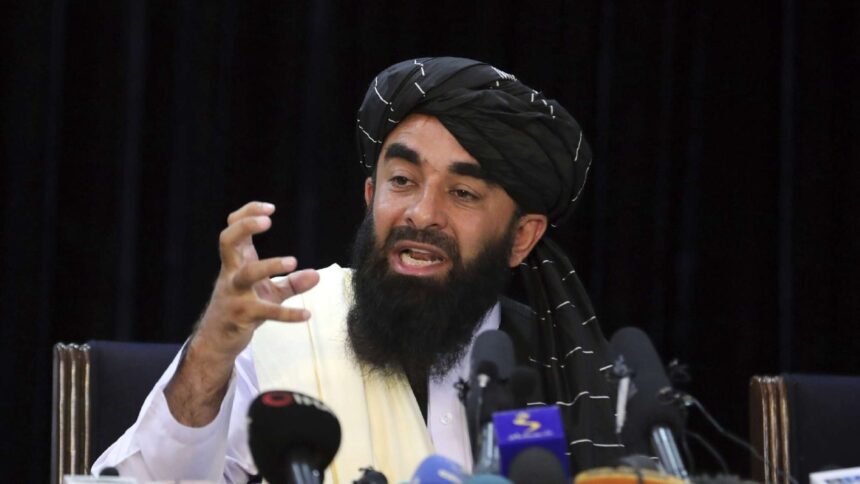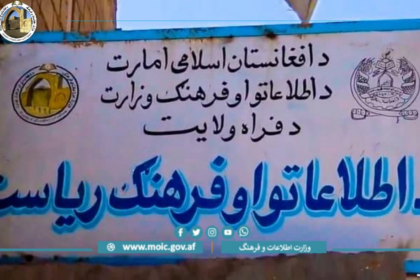RASC News Agency: Following the United Nations’ decision for a fourth consecutive year to deny the Taliban control over Afghanistan’s diplomatic seat, the group’s chief spokesperson, Zabihullah Mujahid, lashed out at the world body, accusing it of having “lost its effectiveness” and claiming it no longer operates as an independent institution. In an interview with a Taliban-affiliated local radio station, Mujahid alleged that the UN is under the influence of Western powers and makes decisions dictated by “specific countries.” At the center of Mujahid’s ire is Nasir Ahmad Faiq, the diplomat representing Afghanistan at the UN since the fall of the former government in 2021. “The individual currently occupying Afghanistan’s seat at the UN represents no one,” Mujahid declared. “If the UN were truly independent, the seat would have been handed over to us we are now the ruling authority in Afghanistan.”
Yet, the international community has remained consistent in refusing to recognize the Taliban regime as the legitimate government of Afghanistan. The United Nations continues to allow Faiq to represent the country, based on the Taliban’s refusal to uphold basic principles of governance, democracy, and human rights. Over the past four years, Faiq has used his platform at the UN to speak forcefully on issues including systematic human rights violations, restrictions on women’s freedoms, the persecution of political dissidents, extrajudicial killings of former security personnel, and the unchecked spread of terrorist networks under Taliban rule. The Taliban’s claim to legitimacy based solely on their control of territory starkly contradicts the foundational principles of international diplomacy and statehood. Unlike recognized governments, the Taliban came to power not through democratic elections or public mandate, but via a closed-door deal with the United States in Doha and a subsequent military takeover. They have systematically dismantled legal frameworks, ignored constitutional norms, and eliminated participatory governance all of which disqualify them from international recognition under established global standards.
Measured against the basic norms of modern governance, the Taliban fail in every domain. Since seizing power, the group has carried out widespread and well-documented violations of human rights, particularly targeting women, ethnic minorities, and political opponents. These abuses not only contravene the United Nations Charter but also strip the group of any claim to moral or legal legitimacy on the world stage. One of the most egregious violations is the Taliban’s blanket denial of education, employment, and civic participation for women and girls a stance that directly violates international human rights conventions and stands in open defiance of the UN’s Universal Declaration of Human Rights. Furthermore, the regime has enforced an ethnically exclusive system of rule, marginalizing non-Pashtun communities such as the Tajiks, Hazaras, Uzbeks, and other minority groups. Religious freedoms outside the rigid Deobandi-Hanafi interpretation endorsed by the Taliban have also been severely curtailed.
These persistent and deliberate violations of human rights are precisely why no member state of the United Nations has formally recognized the Taliban as the legitimate government of Afghanistan. The UN has repeatedly emphasized that recognition is conditional upon the group’s willingness to reform particularly in areas of human rights, inclusive governance, and gender equality. It is worth noting that in the post-World War II era, virtually no regime has remained unrecognized by the international community after four years in power a distinction that makes the Taliban a rare and glaring exception. Their continued diplomatic isolation is not merely procedural; it is a reflection of their deep and deliberate divergence from the values and norms that define lawful statehood in the modern international order.
Though Taliban officials frequently invoke “Islamic Sharia” to justify their rule, many of their actions not only violate contemporary understandings of Islamic jurisprudence but also conflict with long-standing traditional interpretations. Arbitrary detentions, the suppression of peaceful protest, summary punishments without trial, and the complete erasure of women from public life are less reflective of religious doctrine than of a brutal and authoritarian political project. The Taliban’s recent attacks on the United Nations are thus less a critique of the world body’s independence and more an expression of their growing diplomatic frustration and international irrelevance. By demanding unearned recognition while refusing to meet the most basic obligations of governance, the Taliban continue to reveal their fundamental incompatibility with global norms.
Their insistence on unchecked rule, suppression of dissent, and ideological uniformity has left them deeply isolated both at home, where they lack popular legitimacy, and abroad, where they are widely viewed as a rogue regime indifferent to the foundational principles of international diplomacy and human dignity.






